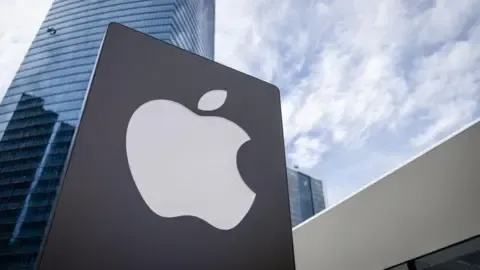
Apple won one of its biggest legal victories on Monday when the UK Investigatory Powers Tribunal handed down a ruling denying the government’s application to conceal minutes of an encryption appeal hearing from the public.
The move is taken because of Apple’s continued refusal to comply with a UK government request to create a backdoor into iPhone customers’ encrypted information – something Apple has strongly resisted on the basis of serious security and privacy dangers.
The judges Rabinder Singh and Jeremy Johnson disregarded the government’s national security arguments for privacy, stating that the request “would be the most fundamental interference with the principle of open justice.”
“It would have been a commendable step to hold a hearing in complete secrecy without giving public notice that a hearing was being held,” the judges stated in their strong criticism of the government strategy.
This suit is one of many global controversies between national security and digital privacy. The government of the U.K., among others, has complained before about the application of end-to-end encryption, which has been criticized for offering cover to a wide range of criminal activity that ranges from terrorism to child exploitation.
Under the disputed Investigatory Powers Act of 2016, or the “Snooper’s Charter,” British authorities may compel technology companies to weaken their encryption techniques with technical backdoors. The measure has been a disputed point of contention between government agencies and technology companies since enactment.
The government’s requirements have already had real-world consequences for British iPhone users. In February, Apple took the drastic step of pulling its Advanced Data Protection (ADP) feature from the UK market entirely rather than compromising on some aspect of its security features.
In a blog post justifying the move, Apple showed deep disappointment: “We are deeply disappointed that our UK customers will no longer have the option to enable Advanced Data Protection, especially in the face of the continued rise in data breaches and other threats to customer privacy.” The firm reiterated its long-time encryption backdoor position as well: “Apple has never built a backdoor or master key to any of our products or services and we never will.”
Privacy activists have long warned that the creation of any form of backdoor access, even for law enforcement, necessarily undermines security for all. With a backdoor installed, they argue, it is an inviting target for hackers, hostile regimes, and criminal cartels.
This new court decision does not settle the underlying controversy over access to encryption, but does guarantee that the legal process will continue to be open and transparent to public view. By refusing the government’s appeal for secrecy, the tribunal has reasserted the value of conducting these defining privacy debates in the open.
The case puts in stark relief the longstanding tension between Apple’s business model, which increasingly is built on privacy as a marketing feature, and governments all over the world who want more access to digital communications for security purposes.
For British consumers, the short-term impact remains the absence of Apple’s strongest encryption features. Apple did state in its press release, however, that it is “hopeful that we will be able to (offer the highest level of security) in the future in the United Kingdom.”
As concern for online privacy persists among consumers around the globe, this case is more than a technical or legal argument – it’s a piece of a foundational debate regarding how to seek out security, privacy, and openness in cyberspace. The UK’s Home Office refused to comment immediately on the decision made by the tribunal, leaving the questions of what the government will do next in this encryption war unanswered for now.